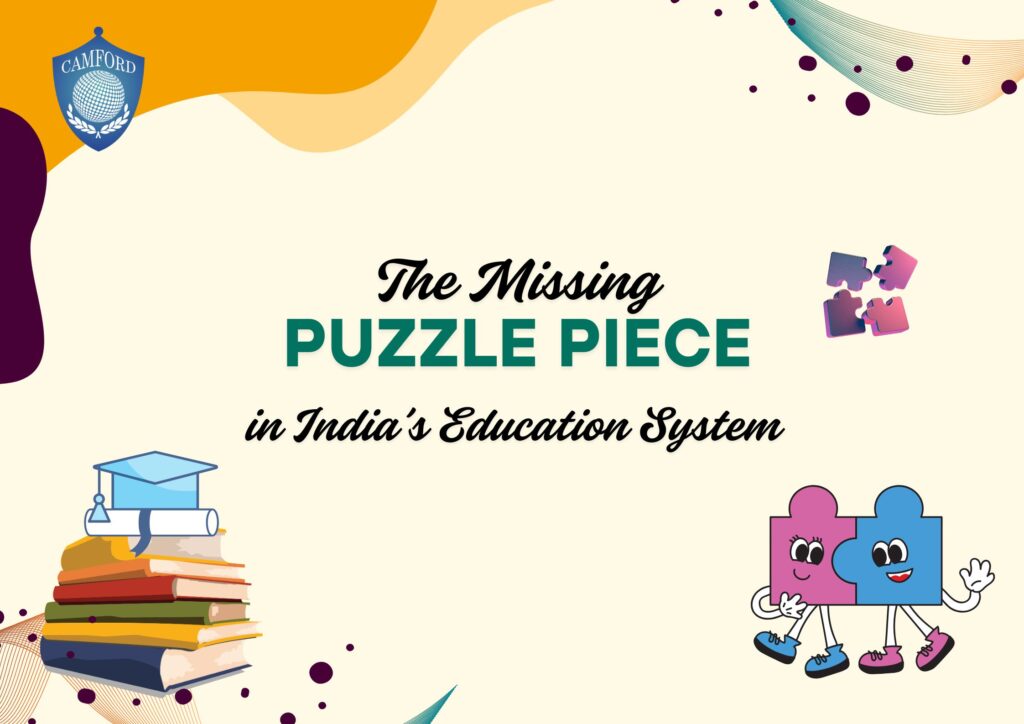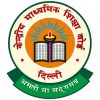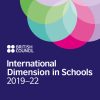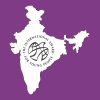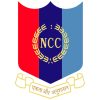Introduction
Imagine a classroom where creativity is stifled, curiosity is suffocated, and students are reduced to mere marks on a sheet of paper. Well this is the cruel truth about India’s education system – where pursuing knowledge has been expropriated by the never-ending ‘chase’ for marks. But what if we told you that there’s more to education than just grades?
That there’s a world where learning is a joyful experience, where students thrive, and where creativity knows no bounds? This blog will take you on a journey to explore the flaws in our education system and propose a radical shift towards a more inclusive, creative, and student-centric approach.
The Education System: A Pressure Cooker?
• The Writing on the Wall:
India’s education system keeps building pressure in young minds, making students feel really stressed and anxious all the time. The numbers are alarming – in 2022, a staggering 1,70,924 suicides were reported, with 7.6% attributed to students and 2,248 deaths due to exam failure. It’s time to take a step back and ask: What’s actually going wrong?
• The Root of the Problem:
The cutthroat competition for marks and the weight of societal expectations are taking a toll on students’ mental health. It’s a brutal cycle where students feel like they are stuck in a tough spot no matter how hard they work.
• A Breath of Fresh Air:
But there’s hope! By shifting our focus from marks to skills and creativity, we can create a more balanced and nurturing environment that prioritizes student well-being and mental health. It’s high time that students be given the space to grow up and explore the world around them.
Skills vs Marks – The Misguided Focus
• The Mad Race for Marks – Marks Becoming the Scale of Knowledge:
The world has created an illusion that students may inevitably lose if they spend some quality time for themselves. The world has started to prioritize grades instead of real skills, so much that, even a small lapse in attention causes students to lag.
The reason for learning gets buried under ‘peer pressure’ and ‘understanding things’ is almost forgotten. Every student is different. Their knowledge and creative skills can definitely take them to great heights in life. What is actually necessary for a rocket scientist is not his/her physics score, but a proper understanding of the subject.
• Same Fees but Different Rank – Why?
Two students pay identical fees in the same institution – one is privileged with a top-tier batch while the other is consigned to a lower one due to the mark percentage obtained. This disparity highlights the inbuiltunfairness and inequality in our education system.
The Dark Side of Commercialization in Education
• The Dark Side of Commercialization:
Educational institutions have become lucrative businesses, viewing students as customers. This has led to academic fees rocketing sky-high, rendering quality education a luxury that can only be afforded by the wealthy.
• The High Price and Taxation on Basic Need:
Education should be a deemed a fundamental right and not a privilege that can only be enjoyed by the rich. It cannot be a treated as a commodity subjected to taxation or robbery. The more you invest in it the more it should grow. Despite its immense value, if 30-50% of our budget is allocated towards it, then it’s something worth contemplating.
Equitable Access + Skill Development = Sustainable Education
• The Importance of Skill Development:
Why should young people only dream of becoming IAS officers, doctors and engineers? In ‘Incredible India’, if our youngsters focus onproper skill development rather than scoring marks, we will become job givers and not job seekers! Some individuals or groups may receive inferior treatment or opportunities compared to others, despite having similar needs or qualifications. If this is sorted out with skill development, then sustainable education is a no-brainer.
Did We Really Acquire Freedom from Britishers?
• Unshackling the Past:Why Pre-colonial Schooling Stood Out
In pre-colonial India, Pathshalas and Gurukuls thrived, offering a unique education system that was both holistic and inclusive through a personalized approach that was tailored to suit individual needs. The fees were based on family income, making education accessible to all. With no books, examinations, or rigid schedules, students were free to learn without unnecessary stress.
This ancient system excelled because it reduced stress, increased accessibility, and produced well-rounded individuals, based on skill and not on ‘marks’. By focusing on holistic development and personalized learning, students were able to thrive in a nurturing environment. The absence of rigid structures allowed students to learn at their own pace, fostering a love for learning that went beyond mere academics.
• Can We Implement These Principles in the Near Future?
While we may not be able to replicate the exact system, we can certainly draw inspiration from its principles. By embracing technology and competency-based progression with more importance to skill and life development, we can create a more inclusive and effective education system.
Abdul Kalam’s Perspective and Need for Reform:
Dr. A.P.J. Abdul Kalam said, “Great nations are not made by handsome people but by those who can give their hands to some who require it.” We need to work towards creating an education system that’s inclusive, equitable, and empowering. It should be one that helps students become active contributors to society, rather than just consumers of knowledge.
We need to understand that education is not the amount of information that is put into the human brain. It should enable a person to create and gather ideas to build a new life. The pen is mightier than the sword, and together, we can rewrite the narrative of Indian education. By shifting our focus from marks to skills, promoting equitable access, and embracing holistic learning, we can unleash a new wave of creativity, inclusivity, and innovation. Also, click to learn about Dr. APJ Abdul Kalam’s Intellectual Journey.
Let’s join hands to craft a brighter future for our students – one that celebrates individuality, fosters curiosity, and nurtures potential. We should make education a journey of discovery, not just a destination. Let’s keep this in mind and make a change, not demand.
Author: N Aadesh, Grade 9

